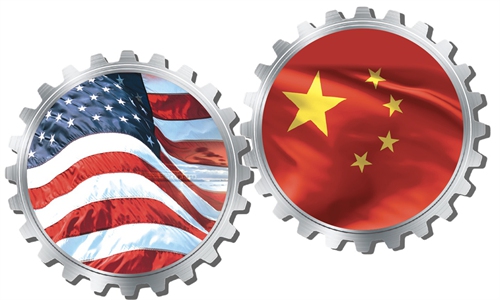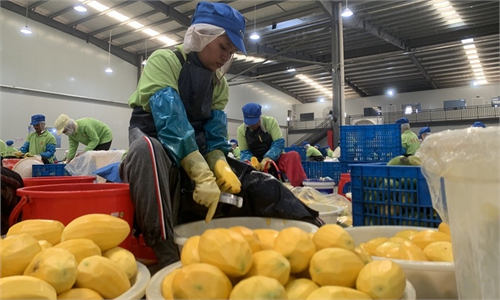
Illustration: Chen Xia/Global Times
China and Serbia signed a free trade agreement (FTA) in Beijing on Tuesday, making the latter the first Central and Eastern European country (CEEC) to sign such an agreement with China. The move, and the demonstration effect it may have on China-CEEC cooperation, will inject more positive factors into local economies, at a time when the world faces an increasingly gloomy and uncertain outlook.As reported by the Xinhua News Agency, the FTA is the 22nd of its kind for China, and it means that Serbia is now China's 29th global free trade partner. The FTA negotiations were launched in April, and substantially completed in September. It is rare to finish talks on an FTA in just a few months. This reflects the strong willingness of both sides to reach a free trade arrangement.
In 2022, bilateral trade reached $3.56 billion, up 10.1 percent year-on-year. The signing of the FTA and subsequent tariff cuts will enhance trade relations. It will be conducive to boosting Serbia's exports, promoting the economy and - more importantly - reducing Serbia's inflation through measures such as cutting import tariffs and giving Serbians more access to high-quality, affordable products made in China.
Serbia's consumer prices rose by 10.2 percent year-on-year in September, after increasing by an annual 11.5 percent the month before. The IMF said in April that Serbia was largely resilient to higher food and energy prices, lower electricity production, drought and tightening global financial conditions in 2022, but it must pursue reforms to maintain growth. Against that backdrop, Serbia has been actively promoting its economy. The signing of the China-Serbia FTA will facilitate this process.
Facing a complicated and volatile international situation, the two countries, acting as each other's "ironclad friend," have continuously enhanced cooperation in such fields as infrastructure, manufacturing, finance and energy. As one of the first countries to sign a memorandum of understanding on cooperation on the Belt and Road Initiative (BRI) with China, Serbia is also among the first to benefit from BRI cooperation.
With mutually beneficial cooperation, the two countries have made gratifying achievements in railways, telecommunications and other fields, and rising bilateral trade and investment are natural results. It is necessary for both sides to reach a free trade arrangement and promote mutual market openness.
China's Commerce Ministry said that through the FTA, China and Serbia will achieve high-standard mutual opening-up, and build a new institutional arrangement for bilateral economic and trade cooperation, while the deal will inject new impetus into efforts to advance a China-Serbia comprehensive strategic partnership.
The case may create a demonstration effect for other CEECs. Economic cooperation between China and the CEECs has been gearing up on a wide range of fronts, underscoring the pragmatism and win-win traits that have been shaping bilateral economic relations.
As reported, trade between China and the CEECs has grown at 8.1 percent annually since 2012, with China's imports from the CEECs expanding 9.2 percent annually. The China-Serbia FTA is the first of its kind signed with one of the CEECs, but it won't be the last. It is believed FTAs between China and the CEECs will continue to be pushed forward.
In the wake of Western sanctions toward Russian energy and a surge in energy prices, some of the CEECs have suffered strong external shocks, given their relatively small economies and simple economic structures compared with developed countries in Western Europe. The most common problem facing the CEECs is stubborn inflation. Against that backdrop, further FTAs with China will bring lasting economic benefits to the region.
China and the CEECs have always enjoyed sound and mutually beneficial economic cooperation. People in the CEECs have witnessed the positive changes that have taken place in the region, and have truly felt the important opportunities brought by mutually beneficial cooperation with China to local economic development.
At a time when China-Europe relations face headwinds and certain Baltic nations trumpet anti-China rhetoric under the instigation of the US, continuously expanding trade cooperation between China and the CEECs would serve both as a cornerstone and engine in the deepening of China-Europe relations.
The author is a reporter with the Global Times. bizopinion@globaltimes.com.cn



